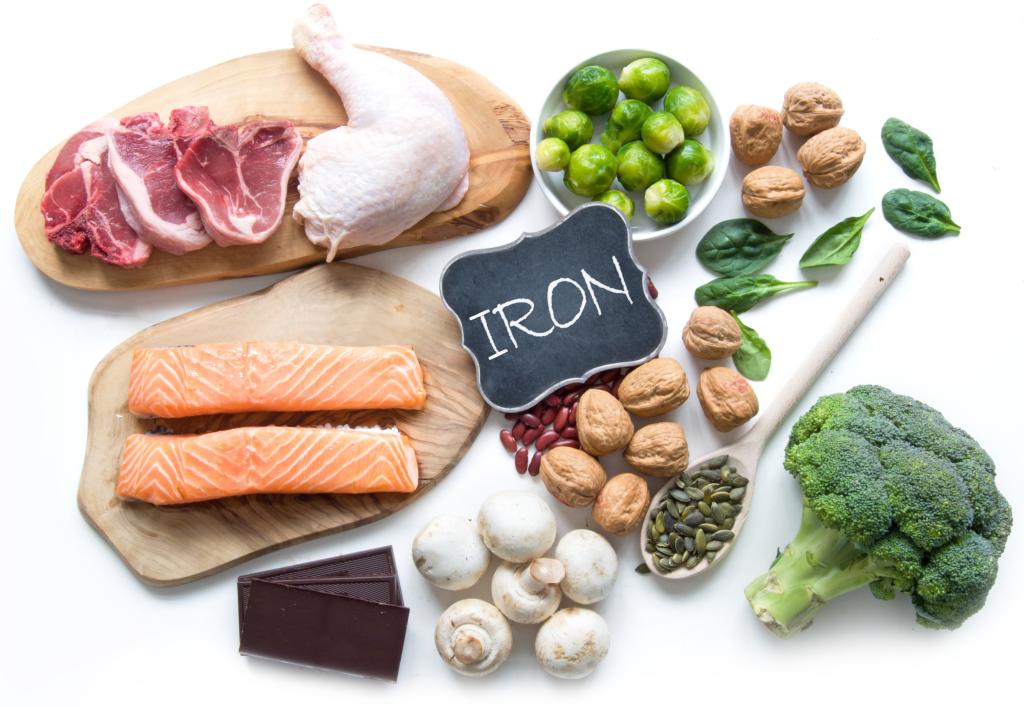
Iron deficiency affects many Australian men and women and is one of the most common types of deficiencies in the world. If left untreated, iron deficiency can lead to a range of issues and in severe cases be life-threatening.
At Grace Private, our Women’s Health GPs help many women with all types of deficiencies including those low in iron. Let’s talk about the common symptoms of iron deficiency, how to boost your iron intake and when it’s time to see one of our doctors.
Iron, an essential mineral, plays a vital role in energy production and oxygen transport in the body. Persistent fatigue may indicate iron deficiency, emphasising its importance. When you consume iron-rich foods, it’s absorbed in the digestive tract and contributes to the creation of haemoglobin in red blood cells.
Haemoglobin carries oxygen throughout the body, crucial for organ function. Low iron levels can lead to fatigue, weakness, and breathlessness. Iron also plays a key role in the immune system, influencing the creation and spread of immune cells. Iron also contributes to thyroid function, and low iron levels may lead to thyroid problems.
The main three reasons women may experience iron deficiency include not eating enough iron-rich foods, blood loss and trouble absorbing iron.
Not eating enough iron-rich foods: Low intake of iron-rich foods can cause iron deficiency, as the body can store iron but can’t produce it. Those with a menstrual cycle, individuals following a vegetarian or vegan diet, pregnant and breastfeeding women, and teenage girls have increased iron requirements.
Trouble absorbing iron: Because iron is absorbed through your stomach and bowel, health conditions such as coeliac disease, or stomach surgery can affect the amount of iron you absorb.
Blood loss: When you bleed you are losing iron. If you have heavy menstrual cycles you may be low in iron. Bleeding in your stomach or bowel, ulcers, bowel polyps, cancer and taking aspirin or other anti-inflammatory medicines can also lead to iron deficiency due to blood loss.
If you’re experiencing iron deficiency you may feel constant fatigue, and some dizziness and you may notice some subtle differences in your complexion. Symptoms of low iron include:
If you are experiencing any of these symptoms and think you may be iron deficient, you should speak to your women’s health GP as soon as possible to determine if you are iron deficient. They will talk to you, conduct an examination and organise a blood test to check your iron levels and check for anaemia.
Depending on the level of deficiency, low iron can be treated by changing your diet to include more iron-rich foods or you may need supplements or an iron infusion. Your GP will recommend the best option for you.

Depending on what your GP recommends, you may need to eat more foods rich in iron or more foods containing Vitamin C to help you absorb more iron. Some foods rich in iron include:
Haem iron:
This type of iron is easily absorbed and can be found in:
Non-haem iron:
Non-haem iron is harder to absorb and includes:
Your Grace Private GP may recommend iron tablets or liquid iron supplements. It’s important to be aware that iron supplements may make your stools dark and can cause constipation – your GP may also recommend something to help with this.
It’s important that you only take iron supplements under the direction of your GP, taking the wrong amount can cause iron poisoning, affect your immune system and interfere with other minerals in your body.
For severe iron deficiency, your GP may recommend intravenous iron infusion.
Just like anything, prevention is better than a cure. You can guard against iron deficiency by ensuring your diet includes sufficient iron. For information on your iron requirements, book an appointment with your Grace Private Women’s Health GP or our knowledgeable dietician, Sharnie Dwyer.

